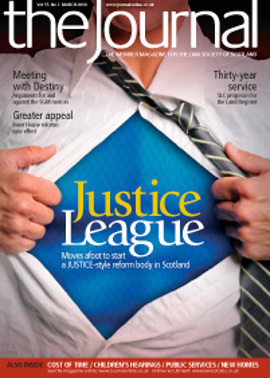A clash of cultures

Sporting participants insist on a level playing field, not just literally but in terms of the rules and regulations that apply to competition and the manner by which they are applied. In a domestic contest with participants under the same national governing body, these rules and regulations are ordinarily a straightforward matter to impose and enforce, although certain constraints may be imposed by European and international federation membership.
Cross-border competition is however of increasing importance, with the Champions League and Europa League in football, and in rugby, the 6Nations tournament, Heineken Cup and Amlin Cup.
In rugby, unlike in football, the international federation the IRB insists on a principle of “universality” when sanctioning illegal and/or foul play. A suspension from playing issued under one jurisdiction must be for a period of time and observed by all members worldwide. However, that universality principle is under scrutiny through developments in France in response to suspensions received by players from French teams participating in the Heineken Cup and the French national side.
Participation by contract
All cross-border sporting competitions operate on the basis of a participation agreement. Participants must sign in order to compete, the agreement having been through consultation with all stakeholders in advance. Thus, for Scots and English players, participation is essentially under contract. The agreement sets out the approach to matters of player discipline. The player agrees to take part in the competition on the basis that he will not be guilty of illegal and/or foul play and if he is then, at certain threshold levels, he will be subject to the disciplinary function provided in terms of the contract.
In the case of the Heineken Cup, the European Rugby Cup as tournament organiser is sanctioned by the IRB to operate a discipline system, provided it applies the principles required, found under IRB regulation 17. The participation agreement imports many regulation 17 concepts, including the universality principle. With the ERC comprising, in essence, the Unions from Scotland, England, Ireland, Wales, Italy and France, the theory is that the sanction imposed by its independent discipline body is observed by all Unions; for most participants, as a disciplinary suspension is in essence a private contractual matter, a challenge by recourse to the ordinary courts can only occur in the Irish courts, as the participation agreement chooses to be regulated by Irish law with disputes being heard in Ireland. The French legal system, however, takes a different view.
Overriding jurisdiction?
In 2008 a Romanian player participating in the Heineken Cup for French side Perpignan received an 18 week suspension for an offence. However, he did not observe the suspension in full for domestic competition because he took his case to the Comité national olympique et sportif française (“CNOSF”), arguing that French law provided CNOSF with ultimate jurisdiction in respect of all sporting sanctions applying or having effect in France. The French Union was understood to have opposed the player’s action, but once the CNOSF pronounced the suspension to be too lengthy and inapplicable for the purposes of sporting contests played in France, due to peculiarities of French law, he was able to participate in domestic competitions played under the jurisdiction of the Ligue Nationale de Rugby (“LNR”), which operates France’s domestic league competition.
In an apparent bid to keep players from invoking the jurisdiction of the CNOSF, the French Union and the LNR have established a joint commission to sit and examine and ratify, or not, the decisions handed down to players from French clubs or the national side when competing in cross-border tournaments. This step has likely been taken to keep decision making as respects rugby in-house and not in the hands of the CNOSF’s general sporting committee.
Cultural differences
The problem that the new commission will face is in part due not only to the different legal concepts applied by French law, but to the culture within the sport itself. When French scrum-half Julien Dupuy this year received a suspension of 23 weeks from the ERC discipline panel for making contact with an opponent’s eyes, the punishment was well within the terms of the ERC participation agreement and entirely consistent with the stipulations of IRB regulation 17; however such an offence would likely have attracted a fixed penalty of 30 days’ suspension due to the LNR’s standardised approach of issuing suspensions of 20 days for minor offences and 30 days for more serious offences (notwithstanding inconsistencies with the requirements of regulation 17).
Whilst the French view is that French law has primacy in relation to all aspects of sporting contests played in France, it is hoped that the new commission will marginalise the influence of CNOSF and strengthen the universality principle, leaving the most noticeable clash of cultures in these cross-border tournaments on the pitch, which is, after all, the main attraction of tournaments such as the Heineken Cup and 6Nations competitions.
- Bruce A Caldow, Partner, Harper Macleod LLP
In this issue
- When is oppression not oppression?
- PAYE penalties – another trap for employers
- Future on the line
- End o' anither auld sang?
- Rights team
- House prices rising – official
- ABS: time to decide
- Streamlining the Inner House
- When cash is king
- The shape of things to come
- Effective participation?
- Keeping tabs on the EU
- How to survive and thrive - read on
- Law reform update
- All-round support
- Family business initiative progresses
- From the Brussels office
- World IP Day approaches
- Going beyond 2010
- Need life be a pressure cooker?
- Ask Ash
- Target practice
- The essence of victim
- Moved with e-motion
- Precious words
- The future of crofting
- A clash of cultures
- If it sounds too good to be true...
- Website review
- Book reviews
- Services transformed
- Consumer Code for Home Builders
- Estate agency fixed fees: the way ahead?






